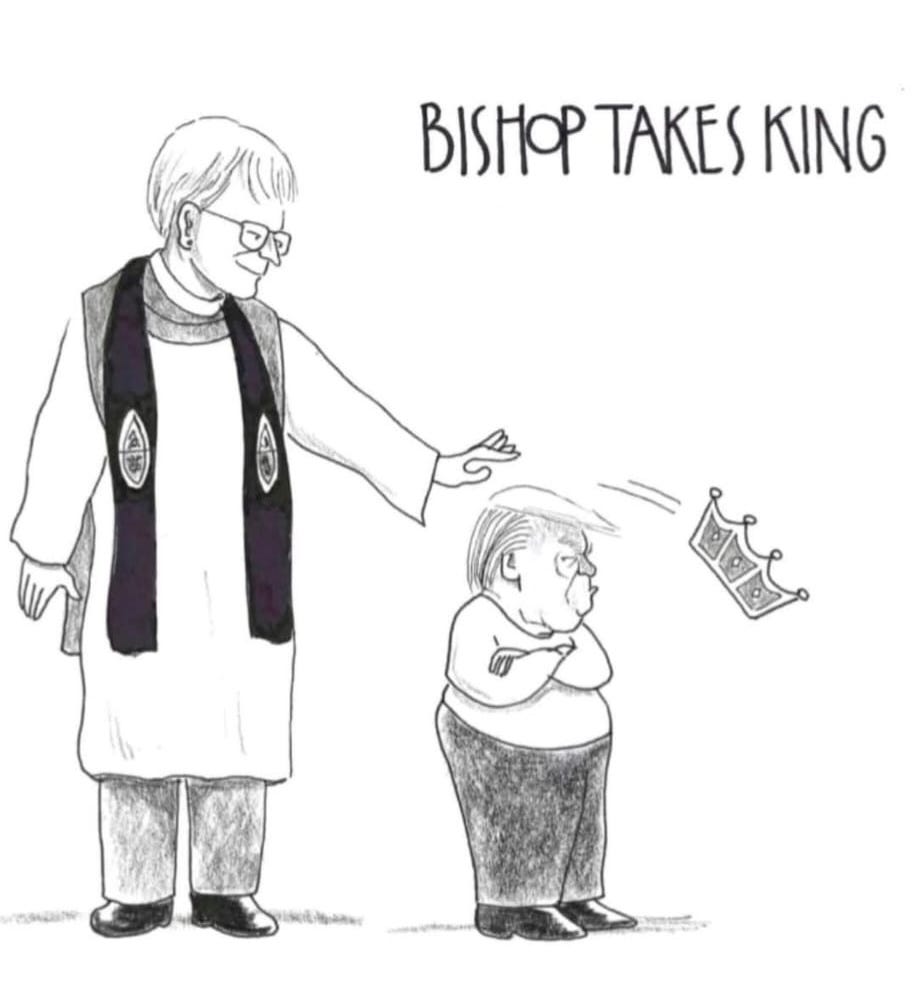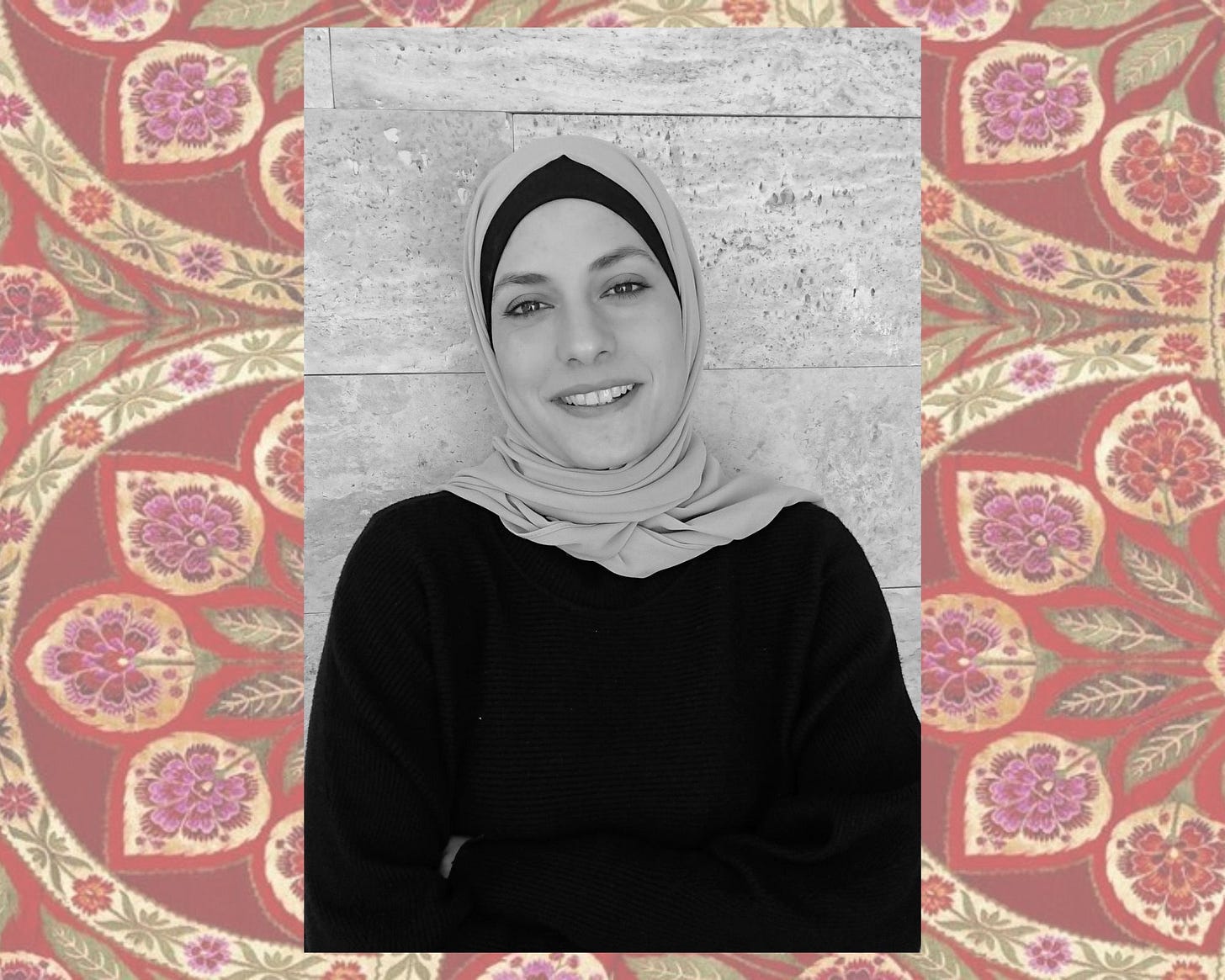The first song featuring women from all 195 countries.
And various gender-related lawsuits around the globe.
“The Intersection” is your Monday, Wednesday, and Friday briefing on global affairs, social innovation, culture, and design—offering fresh insights through the lenses of sustainable development, women-centered perspectives, and emerging global trends. The aim? To keep you informed, curious, and always ready with a compelling conversation starter at the dinner table.
Five days down, this long to go.
Mexican President Sheinbaum signs ‘nearshoring decree’ to attract foreign investment.
ICC prosecutor seeks warrants for Taliban leaders over persecution of women.
Biden set records for appointing diverse federal judges. Plus, this is a really good breakdown of the promises he kept, compromised on, and broke.
The U.S. House of Representatives approved a bill that would restrict federal funding for schools that include transgender students in women and girls sports. Now, it goes to the Senate.
Burkina Faso bans colonial wigs in courts to embrace cultural identity.
Bishop Mariann Edgar Budde, the first woman to lead the Episcopal Diocese of Washington, delivered a pointed plea during a service on Tuesday, addressing President Trump directly from the pulpit. Locking eyes with the new president, she called for compassion and mercy toward immigrants and LGBTQ communities, marking a striking moment of moral leadership in the nation’s capital. He whined about the service, obviously.
A global anthem for gender equality debuted at Davos this week, uniting women from all 195 countries in a powerful display of solidarity. The song, tuned to the 528 Hz “Love Frequency,” aims to spark a worldwide movement promoting gender equality and mental health awareness. Spearheaded by journalist Martina Fuchs and produced by Grammy-nominated artist Maejor, the project showcases women saying the word “equality” in their native languages, blending diverse voices into a universal call for change. The initiative was unveiled by The Frequency School in partnership with The Female Quotient at the World Economic Forum. By fusing music, activism, and innovation, the creators hope to amplify women’s voices on the global stage and inspire collective action toward a more equitable future.
More news from Davos…The Schwab Foundation for Social Entrepreneurship, in collaboration with the Motsepe Foundation, revealed the 2025 awardees whose innovative solutions are tackling urgent global challenges and driving systemic change. This year's cohort comprises 18 leaders from 15 organizations, each embodying values-driven entrepreneurship with transformative models in business, social development, and environmental sustainability. Their work spans from addressing health disparities in the U.S. and Zambia to creating income opportunities for displaced individuals, combating deforestation across Central and West Africa, and improving the livelihoods of vulnerable communities in India and beyond. Each person is incredibly inspiring and a reminder that there are so many brilliant people working daily on the world’s most pressing issues. The awardees include:
Muzalema Mwanza – Founder of Safe Motherhood Alliance, a purpose-driven organization in Zambia that aims to ensure safe childbirth for the 20 million pregnant women in sub-Saharan Africa without access to equitable maternal healthcare.
Aline Sara – Co-Founder of NaTakallam (‘We Speak’ in Arabic), which disrupts the conventional approach to humanitarian aid by enabling refugees and conflict-affected individuals to earn an income online as language tutors, teachers, and translators.
Caitlyn (Juhong) Chen – Vice-President and Head of Sustainable Social Value (SSV) at Tencent, where she drives the company’s mission of “Tech for Good” by harnessing connection and digital innovations to address environmental, healthcare, and other sustainable development challenges.
Dr. Madeleine Ballard – Chief Executive Officer of the Community Health Impact Coalition (CHIC), a collective of community health workers (CHWs) and aligned health organizations from 60+ countries. CHIC is making professional CHWs – who are salaried, skilled, supervised, and supplied – the norm worldwide by changing guidelines, funding, and policy.
The rollback of the "sensitive zones" policy under Trump’s Department of Homeland Security has raised significant concerns among immigrant rights advocates. Initially implemented in 2011 and later expanded by the Biden administration, the policy shielded undocumented immigrants from deportation in spaces like schools, churches, hospitals, and women’s shelters, ensuring access to essential services without fear of arrest. The removal of these protections could deter vulnerable populations—particularly women experiencing domestic violence—from seeking safety in shelters or accessing vital social services. The stakes are high: a survivor may now be forced to choose between enduring abuse or risking deportation by seeking refuge. Compounding the issue is the potential return of the "public charge" rule, which Trump expanded during his first term to include non-cash assistance programs like food stamps and Section 8 housing. Although certain visas, such as the U and T visas for victims of trafficking and violent crimes, were exempt, the broader and more restrictive definition created confusion and fear, discouraging many from seeking help. For victims of domestic violence, access to housing and food assistance can mean the difference between staying or leaving an abusive situation—a lifeline that now feels increasingly out of reach.
A new exhibition in Rome shines a light on the often-overlooked women artists who made the city their artistic home from the 16th to the 19th century. Featuring around 130 works from over fifty-six artists, including the likes of Caterina Ginnasi, Maria Felice Tibaldi Subleyras, Lavinia Fontana, Artemisia Gentileschi, and lesser-known figures such as Giustiniana Guidotti and Amalia De Angelis, the show traces the gradual inclusion of women painters in the international art market. Drawn primarily from the Capitoline collections, alongside works from prestigious institutions like the Uffizi and the National Portrait Gallery, the exhibition chronicles the difficult journey these women faced to gain access to artistic training and recognition. Highlighting diverse techniques, genres, and the push for equal footing within Rome’s creative sphere, the project underscores the city’s role as a key hub for artistic development—both a place of practice and a testament to the resilience of the women who helped shape its reputation as a cultural epicenter.
Time Out has unveiled its annual ranking of the world’s 50 best cities for 2025, based on insights from more than 18,500 urbanites. Claiming the top spot is Cape Town, followed by Bangkok, New York, Melbourne, and London. Chicago landed in 11th place, earning top marks for its culinary scene, second place for nightlife, and the coveted title of the most beautiful city on the list. While Cape Town remains uncharted territory for me, it’s quickly climbing to the top of my travel wish list. What do you think of these rankings? I would love to see a ranking like this comprised solely of women respondents. What cities do you think would be at the top of the list for women?

Last week, Frankfurt played host to Heimtextil, the world’s largest trade fair for home and contract textiles, welcoming over 3,000 exhibitors and participants from 130 countries. The sprawling Messe Frankfurt fairgrounds buzzed with innovation as state-of-the-art materials, AI, digital printing, and recycled fabrics took centre stage.
Among the standout exhibitors was Lanerossi, which unveiled ‘Lavabili’ – a collection of 100 percent cashmere and wool blankets that are machine washable, certified by the Global Organic Textile Standard.
Yagi & Co also caught attention with Lavatech, a revolutionary material made by weaving finely crushed lava rock sourced near Mount Fuji. Boasting far-infrared radiation benefits, Lavatech promises health and wellbeing applications ranging from sleep to sports recovery.
Beddinghouse introduced a skincare pillowcase with collagen fibres designed to work overnight, while Lameirinho showcased temperature-regulating pyjamas, a potential game-changer for couples with different sleeping preferences.
The event also spotlighted the integration of digital technology and AI in textiles. Kornit Digital impressed with its pigment-printing technology, creating intriguing 3D textures, and debuted a furniture collection in collaboration with Niso Furniture.
MYTH AI, meanwhile, demonstrated how generative AI is transforming design processes for bedding, wall décor, and flooring by offering faster, more customisable solutions with IP protection via blockchain. These innovations reflect the fair’s forward-thinking approach, merging traditional craftsmanship with cutting-edge technology to redefine the future of home and contract textiles.
Apple is grappling with a gender discrimination lawsuit that took a significant turn yesterday, as a judge dismissed the company’s bid to block it from gaining class-action status. The case began when an employee discovered her male colleague’s tax return on a photocopier, sparking concerns over pay equity. The tech giant has yet to comment on the ruling.
The UK government is preparing to introduce new legislation under its Crime and Policing Bill that would criminalise the creation and distribution of sexually explicit deepfake images, as well as the non-consensual taking of intimate images. The law, which targets offenses involving adults, would carry a maximum penalty of two years in prison. Existing laws already cover the creation or sharing of images of children, as well as the threat or dissemination of such material, under the Sexual Offences Act of 2003 and the recently enacted Online Safety Act of 2023. Alex Davies-Jones, the Minister for Victims and Violence Against Women and Girls, addressed the issue, stating, “It is unacceptable that one in three women have been victims of online abuse. This demeaning and disgusting form of chauvinism must not become normalised... These new offences will help prevent people being victimised online. We are putting offenders on notice – they will face the full force of the law.” The move reflects a growing effort to combat online abuse and protect individuals in the digital age.
An incredible piece by Karine Jean-Pierre, President Biden’s barrier-breaking press secretary. “I have kept details about my private life under lock and key,” she writes for Vanity Fair. “Society doesn’t allow women of color to be vulnerable at work… In fact, it won’t be until reading this that the people I have worked 16-hour days with, traveled across continents with, will learn that for almost two years, I have been silently working a second full-time job, which is navigating my mother’s care.”
Marwa Al-Sabouni (1981-). Syrian architect and writer Marwa Al-Sabouni has gained international recognition for her visionary approach to post-war reconstruction. A native of Homs, Al-Sabouni stayed in her home city throughout the Syrian Civil War, enduring years of siege while home-schooling her two children. Witnessing the destruction around her, she became convinced that architecture plays a critical role in fostering or fracturing a city’s social harmony. Her first book, The Battle for Home: The Vision of a Young Architect in Syria, published in 2016, examines how poorly planned urban environments can sow division and violence, while thoughtful design can help rebuild communities. Her innovative proposals for rebuilding Homs’s Baba Amr district, including “tree units” that combine residential, commercial, and communal spaces, draw inspiration from Syria’s architectural heritage while addressing modern needs.
Al-Sabouni’s work extends beyond design to advocacy, education, and cultural preservation. Alongside her husband, she co-founded Arabic Gate, the world’s first online portal for architectural news in Arabic, as well as a bookshop in Homs. In 2016, she delivered a TED Talk, How Syria’s Architecture Laid the Foundation for a Brutal War, which has been viewed over a million times. Her second book, Building for Hope: Towards an Architecture of Belonging (2021), explores how urban planning can heal fractured societies, emphasizing the importance of architecture in fostering identity and belonging. Al-Sabouni has also advised global institutions such as the World Economic Forum and contributed to major outlets, including NPR, the BBC, and The Wall Street Journal.
Her contributions have earned her numerous accolades, including the Prince Claus Fund Laureate in 2018, recognition as one of the BBC 100 Women in 2019, and finalist status for the Pritzker Architecture Prize. Through her writing, designs, and advocacy, Al-Sabouni continues to champion the role of architecture as a powerful tool for reconciliation and rebuilding in the wake of conflict.
That is all for this week. Let me know in the comments what you plan to do this weekend, and we will be back at it on Monday.
Jennifer
xxx








